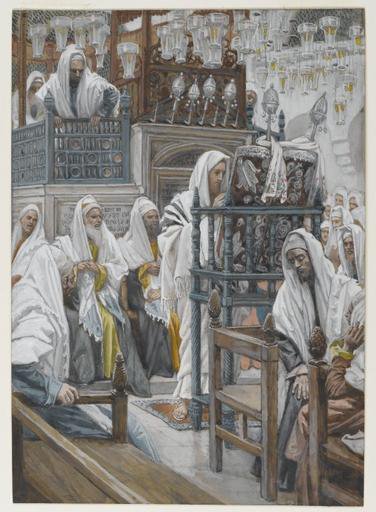Thoughts for the Day
Thursday, 27th August 2020: Jesus in his home town
Disciples Mark Chapter 6 Synagogue Preacher
Reading : Verses from Mark, Chapter 6

Jesus left that place and came to his home town, and his disciples followed him. On the sabbath he began to teach in the synagogue, and many who heard him were astounded. They said, 'Where did this man get all this? What is this wisdom that has been given to him? What deeds of power are bing done by his hands! Is not this the carpenter, the son of Mary, and brother of James and Joses and Judas and Simon, and are not his sisters here with us?'
And they took offence at him. Then Jesus said to them, 'Prophets are not without honour, except in their home town, and among their own kin, and in their own house.' And he could do no deed of power there, except that he laid his hands on a few sick people and cured them. And he was amazed at their unbelief.
(New Revised Standard Version)
Thoughts
Jesus goes back to Nazareth his home town, as a visiting Rabbi with his disciples. But the people cannot accept him. Instead of wonder at his teaching, he is met with contempt. Those who knew us as children can be severe critics! Mark mentions Jesus is a carpenter. In Greek this is a tekton, that is a craftsman who could build a cupboard or a house. But the people despise him because he is a working man, and not a trained Rabbi.
We see Jesus has brothers and sisters, but Joseph seems to have died, since the people call him 'Mary's son'. Perhaps this is why he didn't leave Nazareth until he was 30 years old - as the oldest he would have stayed until his brothers could support the family.
This story teaches us that we should never judge others by external things. We need to look below the surface and see the person's real worth. It also teaches us about God: Our Heavenly Father will work with us when we have an open mind, even if we have no real belief, but He finds it difficult when we have antagonistic unbelief.
Prayer
Heavenly Father,
teach us to love others
whatever their external appearance,
and to have an open mind
to You and to all people,
so that we may continue to grow
in faith and love.
Amen